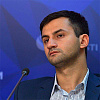Syria’s New Government. What is Damascus Driving at?
In
Login if you are already registered
(no votes) |
(0 votes) |
Ph.D. in History, Scientific Advisor of The Evgeny Primakov Center for International Cooperation, Senior Research Fellow, Center for the Arab and Islamic Studies, Institute of Oriental Studies RAS
On July 3, 2016, President of Syria Bashar al-Assad announced the formation of a new government.
On June 22, Assad dismissed the former government and appointed a new prime minister, former Minister of Electricity Imad Khamis, replacing Wael al-Halqi. Khamis is a technocrat. He is known for managing to provide the country with electricity for a long time – even during the war, when purpose mobile groups were formed to meet this goal. The new prime minister has been tasked with forming the new government, yet it is clear that key ministers will retain their posts. The reason is the interaction of those political forces that are represented in the country’s parliament. Following the April elections, 200 of the 250 seats in parliament belong to the National Progressive Front, a coalition led by the President’s Ba’ath party (the Arab Socialist Ba’ath Party).

Photo: SANA
Thus, the following ministers retained their posts: Deputy Prime Minister and Foreign and Ministry of Foreign Affairs and Expatriates Walid Muallem; Minister of Defence, General Fahd Jassem al-Freij; and Minister of the Interior, General Mohammad al-Shaar. In addition, Adib Mayaleh, former Governor of the Central Bank of Syria, was appointed the new Minister of Economy. The need to form a new government was not caused by a breakdown in the negotiations or by increased military hostilities, but by the worsening socioeconomic situation and growing prices for certain types of goods, including oil products, which the state promised to continue to support via subsidies during al-Halqi’s final days as prime minister.
The new government is made up of proven Syrian politicians, mostly connected to the regional branch of Ba’ath, Syria’s ruling party, and comprises 32 people. Five are state ministers, with only one being considered a member of the opposition – Ali Haidar, an ophthalmologist and university classmate of Bashar al-Assad who is the Minister of State for National Reconciliation Affairs and a member of the Syrian Social Nationalist Party (SSNP). Let us not forget that the SSNP, being the second official political power in the country, has its own fighting units that take part in the hostilities on the side of the Syrian Arab Army. Although at the beginning of the Syrian crisis, the SSNP left the National Progressive Front and joined the Popular Front for Change and Liberation led by Qadri Jamil (currently the head of the Moscow–Cairo group for inter-Syrian negotiations), in 2014, the party left that coalition as well and declared its support for al-Assad. This loyalty to Syria’s President allows the SSNP’s members to remain in Syria instead of hiding in other countries, as some other Syrian politicians are forced to do.
These changes in Syria’s domestic political landscape are taking place against the background of Turkey adjusting its foreign policy and normalizing relations with Russia and Israel. Some say that the United States and Turkey have made contacts with the al-Assad administration not only via intermediary states, as al-Assad said in an interview with Australia’s SBS television, but directly via the U.S. and Turkish envoys, who might not hold official positions, but are of a high enough status to express Ankara’s and Washington’s positions.

Photo: www.naharnet.com
Imad Khamis
At the same time, despite constant references to al-Assad’s March 2016 statement that he could envision representatives of the opposition groups in the government and the creation of a national unity government, the Syrian President stated in his recent interview with SBS that they now “belong to the so-called opposition which belonged to those countries [Qatar and Saudi Arabia], not to the Syrian.” This rhetoric will apparently persist.
Therefore, forming Imad Khamis’s government is an insignificant tactical solution that does not influence the political balance. A transitional government remains a far more serious subject; slated for August of this year. Recently, President of the Russian Federation Vladimir Putin stated that he agreed with the idea of incorporating representatives of the opposition into the current Syrian power structure. According to Putin, the idea was suggested by the American side. If there is a certain agreement on the subject between Russia and the United States, then time is running out, and this should be understood in Damascus and beyond.
(no votes) |
(0 votes) |




